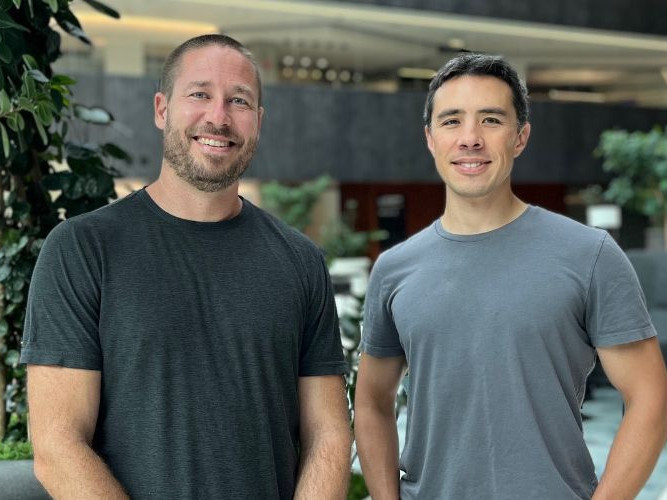Fred Hutch Scientists Launch AI-Powered Biotech Startup to Revolutionize Drug Discovery
In the evolving landscape of biotech innovation, a promising Seattle-based startup is making waves with its novel approach to drug discovery. Synthesize Bio, founded by Fred Hutchinson Cancer Center leaders Jeff Leek and Robert Bradley, recently secured $10 million in funding from Madrona Venture Group. The company’s mission represents a significant potential breakthrough in pharmaceutical research: using artificial intelligence to simulate lab test results, effectively predicting how potential drugs might impact cell behavior without the time-consuming process of actual laboratory experimentation. This approach could dramatically accelerate drug development timelines while substantially reducing costs – addressing two of the most significant barriers to innovation in the pharmaceutical industry.
At the heart of Synthesize Bio’s technology is what they’ve named the “generative genomics foundation model” (GEM-1), which was detailed in a preprint published on bioRxiv. The 16-person team trained this AI model using publicly available datasets that correlate research experiments with RNA sequencing data, essentially capturing gene expression in various cells. The comprehensive training data included information from both healthy and diseased human cells and tissues derived from laboratory research and clinical trials. According to the company’s research, their model “predicts future gene expression experimental results with lab-level accuracy,” which represents a significant advancement in computational biology. This approach could potentially overcome fundamental biological constraints that have traditionally slowed drug development, such as the natural growth rate of cells or the time-intensive nature of recruiting participants for clinical trials.
“This is the kind of infrastructure shift that redefines what’s possible in life science R&D,” observed Matt McIlwain, managing director at Madrona, in a LinkedIn post celebrating the investment. “With generative genomics, researchers can ask bolder questions, design smarter trials, and test hypotheses that were previously unaffordable or impossible to explore.” The implications of this technology are far-reaching – by creating a computational simulation environment for testing drug candidates, researchers could potentially explore thousands of possibilities in a fraction of the time it would take to conduct physical experiments. The ability to rapidly iterate and test hypothetical drug formulations could dramatically expand the scope of pharmaceutical innovation, allowing scientists to pursue research avenues that might otherwise be considered too time-consuming or costly.
Synthesize Bio’s approach addresses a fundamental challenge in biomedical research that the company articulated in their preprint: “Many lab experiments can be conducted no faster than the speed with which cells grow or diseases develop, while clinical trials are similarly governed by the availability and recruitment of participants and essential regulations to protect patients.” The generative capabilities of their AI model offer a potential workaround to these biological constraints by “computationally simulating many, or even all, limiting experimental steps.” If successful, this approach could fundamentally transform how drug discovery proceeds, potentially shaving years off development timelines and billions off development costs, while also reducing reliance on animal testing and accelerating the delivery of novel treatments to patients.
Synthesize Bio joins a growing ecosystem of AI-powered biotech innovation in the Seattle area. The region has become a hotbed for companies and research groups leveraging artificial intelligence to solve complex biological problems. Notable examples include the University of Washington’s Institute for Protein Design, which uses AI to create novel proteins with therapeutic potential; the Fred Hutch-led Cancer AI Alliance, which brings together major cancer research centers with support from the Allen Institute for AI and Google Cloud; and the Allen Institute’s Seattle Hub for Synthetic Biology, which is developing DNA-based technologies to record cellular experiences over time. The vibrant startup scene also includes numerous companies like Xaira Therapeutics, Archon Biosciences, Lila Biologics, and others, many of which have spun out of established research institutions.
The preprint detailing Synthesize Bio’s technology features contributions from a diverse team of researchers including Gregory Koytiger, Alice M. Walsh, Vaishali Marar, and several others, highlighting the collaborative nature of this cutting-edge work. As the company moves forward with its newly secured funding, the biotech community will be watching closely to see if their approach can deliver on its promise to transform drug discovery. If successful, Synthesize Bio’s technology could represent not just an incremental improvement but a paradigm shift in how we develop new medicines – making the process faster, more efficient, and ultimately more responsive to human needs. In a field where success is measured not just in dollars but in lives improved and saved, the potential impact of such innovation extends far beyond the balance sheet, offering hope for patients awaiting treatments for currently incurable conditions.


